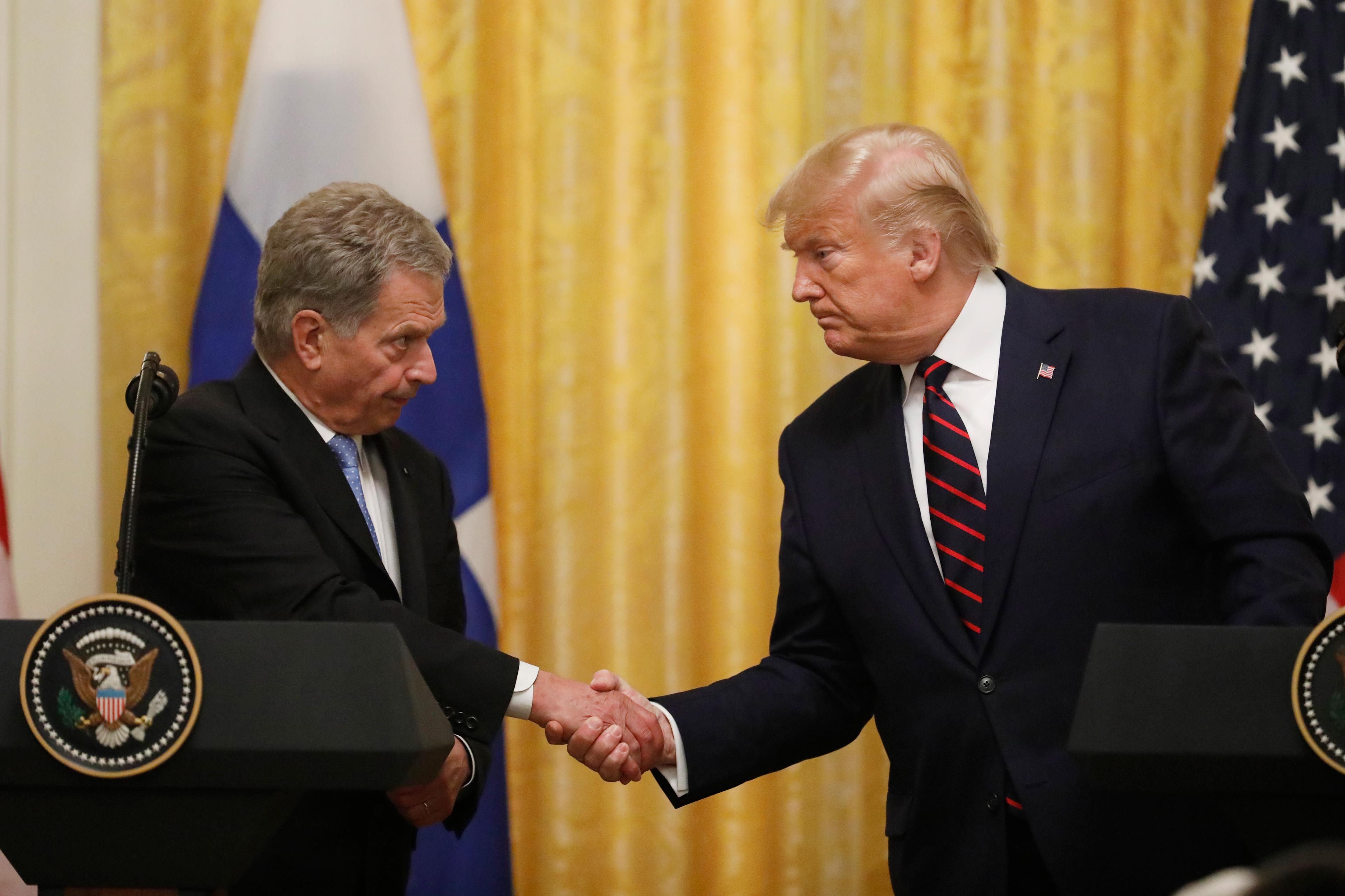
Updated 12:33 p.m.
President Donald Trump’s press conference with Finnish President Sauli Niinistö made news for many reasons — his continued attacks on the media, his political opponents and defense of his “appropriate” call with Ukraine’s leader. But there was a piece of news that got lost in all the sturm and drang.
The United States and Finland reached an agreement to return American Indian remains and artifacts from Finland back to Mesa Verde in Colorado.
U.S. Ambassador to Finland, Robert Frank Pence, announced the agreement, flanked by both presidents. “It's special to us, and I think it's probably special to indigenous peoples everywhere around the globe that we're all concerned about paying appropriate respect to those who have departed before us,” he said.
The pieces were part of a collection in the National Museum of Finland. The two countries have tried to reach an agreement for years. In the late 19th century, Swedish researcher Gustaf Nordenskiold excavated what is now part of Mesa Verde National Park in the southwestern corner of Colorado. He took with him 20 bodies, 28 funerary object and more than 500 other items.
The 26 tribes associated with the park worked with the museum to identify items they wanted repatriated. They include the Southern Ute and Ute Mountain Ute Tribes in Colorado, the Hopi Tribe in Arizona and the Navajo Nation in Arizona, New Mexico and Utah.
In a statement, the Southern Ute Tribe said they supported "the honorable, humanitarian efforts and wishes of the Hopi Tribe, Pueblo of Acoma, Pueblo of Zia, and Pueblo of Zuni to repatriate our ancestors from Finland."
The Department of the Interior also praised the agreement. Tara Katuk Sweeney, Assistant Secretary of Indian Affairs, said the agreement “reaffirms how important that Native American remains be treated with care and respect.”









